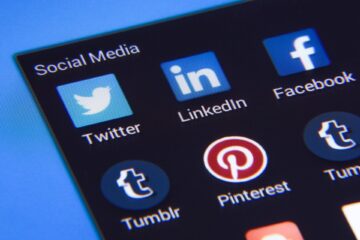![]()
Introduction:
Copyright infringement (colloquially referred to as piracy) is the use of works protected by copyright law without authorisation for use unless such permission is required, in violation of certain exclusive privileges granted to the copyright holder, such as the right to print, write, display or conduct protected works or the right to perform derivative works. The copyright holder is typically the author of the work or the printer or other business to whom the copyright has been issued. Copyright holders routinely invoke administrative and technological initiatives to prevent and penalise copyright infringements.
Copyright infringement lawsuits are normally settled through mutual settlement, warning and referral, or civil court hearings. Egregious or large-scale commercial infringements, especially when they include counterfeiting, are frequently prosecuted in the criminal justice system. Shifting consumer expectations, developments in emerging media and the growing scope of the Internet have led to such pervasive, anonymous infringements that copyright-dependent companies now rely less on prosecuting persons finding and distributing copyright-protected material online and more on extending copyright law to identify and penalise, as indirect infringers, the service.
Estimates of the real economic effect of copyright infringements differ greatly and depend on several factors. However, patent holders, business leaders and lawmakers. The Internet has brought the issue of copyright to the forefront like nothing else in history. The ease and speed with which people can share digital information has also made it very easy to commit copyright infringement, intentionally or not. In this guide, we cover copyright, plagiarism, and the DMCA with specific references and insights for students.
What is Copyright Infringement?
Copyright infringement happens when either of the following occurs: wrongful use of the proprietary property of the owner of the copyright, whether in relation to an entire or a significant part of the copyrighted work; allowing the position to be used for infringing purposes on a benefit basis, and exhibiting or displaying in public by way of trade or distribution for the purposes of trade or importing infringi. Copyright is a collection of rights granted by statute to authors of literary, dramatic, musical and artistic works and creators of film and sound recordings.[1]
Copyright provisions include the rights to reproduction of the work, the communication of the work to the press, the adaptation of the work and the translation of the work. The extent and length of the protection provided for under copyright law vary with the nature of the protected work. In the 2016 copyright case, the High Court of Delhi argues that copyright is not an inevitable, spiritual or universal right that confers full ownership on creators of their works. Rather it is intended to promote activity and advancement in the arts in order to improve the creative resources of the public.
Copyright is intended to maximise and not impede the harvesting of knowledge. If any of these actions relating to work are carried out by a person other than the owner without a licence from the owner or the competent authority under the Act, they constitute a violation of copyright in the work. Since copyright is issued only for a finite amount of time, there would be no violation of the duplication of the work or any actions involved takes place after the expiry of the copyright period.
Copyright Infringement Laws of India
Copyright infringement applies to the wrongful use of another of the copyrighted contents. Thus, the use of the copyrighted work of an individual without permission infringes certain rights of the copyright holder, such as the freedom to print, write, display or conduct the protected work. Section 51 of the Copyright Act points out the misuse of copyright. Pursuant to Section 51 of the Act, the violation of copyright shall be considered to have happened if:
- An individual without the permission of the copyright holder shall commit any act which only the copyright holder is entitled to do.
- A person shall permit the place to be used for the correspondence, sale, dissemination or display of an infringing item, unless he has been ignorant or has no cause to suspect that such consent will result in a breach of copyright.
- An individual shall import infringing copies of the work.
- An individual without obtaining the authority of the copyright holder shall replicate his work in any manner whatsoever.
Copyright Infringement Laws in USA
Any person who infringes any of the exclusive rights of the copyright owner as set out in sections 106 to 122 or of the author as set out in section 106A(a), or who, in breach of section 602, imports copies or phonorecords into the United States, is an infringer of the copyright or copyright of the author, as the case may be. For the purposes of this chapter (other than section 506), any reference to copyright shall be assumed to contain the privileges granted by section 106A (a). As used in this subsection, the word “anyone” shall mean any State, any instrumentality of a State, and any officer or employee of a State or any instrumentality of a State operating in its official capacity. Any State and any other instrumentality, officer or employee shall be subject to the provisions of this Title in the same way and to the same degree as any non-governmental body.
Primary Infringement
The primary violation refers to the overt act of copying the work of the copyright holder. For example, copying a book and then selling it for commercial purposes. Sometimes, however, only a part of the work, such as the paragraph of the article, can be copied. In such a case, the copyright holder is obliged to make two things:
- Copyright is infringed only if a significant portion of the work is replicated by an infringing group. Copying, for example, the catchy line of a lyricist. When deciding the case, the court also tries to understand how the ordinary person will see the work. When the ordinary person becomes suspicious that work is stolen by another source, stealing will be called.
If the writing form, the spelling and the errors are the same as the copyrighted piece, it will serve as evidence of copying in a court of law. Minor changes made by the individual to the work of the copyright holder shall not impact the claim of infringement. - The copyright holder must claim that there are similarities between the work of the copyright holder and the infringer. However, this may be attributed to a variety of other reasons, such as that both used the same source for analysis. In such a case, the owners of the copyright could not claim infringement.
Minor Infringement
Minor Infringement refers to the infringement of copyright work without actually copying it. This can happen in the following ways:
Giving a place for Infringement of Copyright
If a person licences a place or allows a place (for profit) to be used to convey the work to the public and the work amounts to copyright infringement, that person may be held responsible for the violation of copyright. However, if the guy is ignorant or has no cause to assume that the position is used for infringement of copyright, he cannot be found responsible for the same thing.
It is necessary to remember that the individual should have the position of “profit” to be held responsible for infringements of copyright. If the NGO leaves the position, the NGO cannot be held accountable for the same matter.
Selling Copies Violating
If a person sells copies that infringe the copyright holder’s rights, the person may be liable to copyright infringement.
Distribution of Unauthorized Copies
When a party distributes infringing copies of the copyright holder works, the violation shall be the infringement of copyright. For example, if a person uploads a movie to the internet for free, it is a copyright infringement.
Importing Copies Violating
Importing the infringement of copyright work in India also leads to breach of copyright law. However, whether the individual has imported the infringement for domestic or personal use, it would not amount to an infringement of copyright.
Copyright Infringement Issues
Copyright infringement concerns have changed over the years, but with increasing technical developments, the Copyright Office has encountered an increasing number of issues in an attempt to keep pace with progress.
Technology
Modern technology makes it reasonably easy to replicate a product or knowledge, and certain businesses gain a large part of their income from replicating what other companies have made. Besides, the Copyright Office founded the Office for the Modernization of Copyright in 2018. The division is responsible for managing The (internet technology) transformation programmes to modernise both the Copyright Headquarters and the Library of Congress.
International Issues
The violation of copyright and the resulting security laws may vary from country to country, with different opportunities for redress and different quantities of protection. In an international context, it can be difficult to assert copyright rights, and domestic courts may see the prosecution of copyright charges by foreign firms as a challenge to national competitiveness. Any multinational bodies, such as the European Union, are seeking to keep the rules and compliance guidelines of their member countries as harmonised as possible.
Photography and Visual Assets
With the developments in digital imaging, copying an image has been simpler than ever before. For the last two years, the Patent Office has been made aware of numerous copyright problems from photographers, illustrators and graphic designers.
Noneconomic Rights
Not all infringements of copyright result in a measurable monetary damage per se. Moral rights are also upheld, and cover the freedom of the author to be named as the author of the job – the so-called right of attribution. Also, authors look to prevent changes or distortions of their work–called the right of integrity.
The Internet
The rising value of the Internet has created new hurdles for copyright holders. It is cheaper than ever for proprietary content to be downloaded by businesses around the world, and the creation of emerging technology has overcome the legal environment’s ability to ensure that new formats are protected by copyright.
The object of the Quote, Critique and Analysis is the true justification for the use of the text. For eg, one cannot address the film as a whole in an essay and then comment that he/she enjoyed the film.
Copyright Exclusions
If an individual takes quotations from a copyrighted book, it would not amount to an infringement. Similarly, an individual can quote examples of the published work in order to critique or review it.
Criteria regarding the use of the exemption:
- The content used for analysis or critique should already be made available to the media. Thus, an individual cannot use documents that are not made available to the public but are held private.
- It should be appropriate to use the content. There is no legal description of what is fair and what is not fair. The equal use of the content relies on the facts and circumstances of the situation.
- If an individual has given sufficient acknowledgement to the copyright holder, it does not amount to copyright.
Copyright Infringement Remedies
Under the Copyright Act, 1957, the owners of copyright has two kinds of remedies:
Civilian Remedies
Section 55(1) of the Copyright Act provides that the copyright holder is entitled to resolve the breach by injunction. The injunction is the most successful remedy for copyright infringements. Injunction shall refer to a court in which a criminal who infringes the civil rights of a victim is forbidden from carrying out his or her actions or is compelled to return the matter to the location where he or she is brought before the suit.
Besides, Article 55(1) of the Copyright Act provides that the copyright holder is entitled to damages for violation of copyright. The object of the harm to the copyright holder is to restore it to an earlier location. Several factors specify the amount of damages to be paid to the copyright holder. Generally, fees are given for the amount that would have been issued to the copyright holder if the person had obtained the licence from the copyright holder. However, several other factors assess the extent of damage incurred, such as loss of benefit to the copyright holder, loss of prestige, decline in the selling of the copyright holder’s work, etc.
Criminal Remedies
The copyright holder can commence criminal action against the infringer. The judicial procedure is not, nor is complementary to an addition to the civil remedy. Thus, all civil and criminal charges can be taken concurrently by the copyright holder. Section 63 of the Copyright Act provides the misuse of copyright is a criminal offence.
Famous Copyright Infringement Cases
20th Century Fox vs. Universal Studios[2]
Universal Studios decided to develop space saga and science-fiction output after the commercial success of the first “Star Wars” in 1977. So in 1978, the studio came out with the TV series “Battlestar Galactica” with the writer Glen Larson. Yet “Star Wars” creator 20th Century Fox believed that “Battlestar Galactica” had at least 34 parallels to its space saga. So, the studio filed a case against Universal for breach of copyright. The studios, however, resolved the dispute before the trial began. But “Battlestar Galactica” was cancelled by then and “Star Wars” was awaiting the arrival of its second hit film, “The Empire Strikes Back.”
Super Cassettes Industries Private Limited and Ors. Vs. Nandi Chinni Kumar and Ors., Telangana High Court[3]
Plaintiff is a recording label and a film production company. Defendant No.1 is a convicted gangster and soccer star. A film based on the true storey of Defendant No.2 who was Defendant No.1 Coach. The plaintiff argues that he owns the definition, therefore of depiction, portrait, identification and speech of the first defendant. The defendants claim that no action has been taken to issue an injunction against them and other defendants to proceed with the release of the film, entitled ‘Jhund’.
The complainant filed a complaint requesting a permanent injunction banning defendants Nos. 3 to 12 from showing or transmitting the film Jhund from all theatres in India and abroad. The Court acknowledged that there was a clear prima facie argument of violation against the defendants. The court noted from the teaser of the film ‘Jhund’ that there are distinct parallels in the storyline, the representation and the protagonist’s life and narrative. It pleaded that a temporary injunction should be issued in favour of the appellant. The hearing was adjourned until 31 October. The matter was appealed to the High Court of Peshawar.
The Court acknowledged that there was a clear prima facie case of violation against the defendants and argued that an interim injunction could be issued in favour of the claimant.
Shivani Tibrewala vs. Rajat Mukherjee and Ors.[4]
This lawsuit related to the supposed misuse by the Appellant of the Plaintiff’s film script. The Plaintiff had initially written a play entitled ‘The Laboratory,’ which was followed by a decision by the Plaintiff to adapt the play to a film and then wrote a new screenplay for the film. Shortly afterwards, the Defender released a video, entitled ‘Umeed,’ which also dealt with the topic of clinical trials, close to the Plaintiff’s play.
On the grounds of this resemblance, the Complainant filed a copyright infringement suit against the Defendant. Since closely reviewing the scripts of both the Plaintiff’s adaptation of the play ‘The Laboratory’ and the defendant’s film ‘Umeed’ and then seeing the Defendant’s film, the High Court of Bombay ruled in favour of the Defendant.
According to the court, although the basic premise behind the two texts was the same, both of which dealt with clinical trials, the storeys were, however, narrated in entirely different situations. The Court also noticed that the Appellant had agreed to the variations between the script of the play and that of the Plaintiff’s film, which was inspired by the play. This suggested that there were a variety of possible ways to communicate a thought. In conclusion, the court ruled that there should be no copyright monopoly on the concept or subject-matter of a film based on the theme/subject of a clinical trial, which was part of the public domain, and dismissed the plaintiff’s lawsuit.
Conclusion
To sum up, copyright aims to protect the interests of the author and to offer rewards and economic benefits to the creator. The application of copyright refers to literary or artistic creations that involve imagination, including the Database and computer applications. Registration of work is not mandatory in order to apply for copyright, although it is always recommended to register a work so it acts as proof in court. Whether a party infringes someone’s patented material, he or she may be responsible for both criminal liability and civil liability. There are, however, some exceptions to the violation of copyright, i.e. in certain cases an individual is not allowed to seek permission from the copyright holder to use his art. However, it is often recommended not to use someone’s copyrighted work without authorization to create the original work.
References:
[1] WIPO Lex. (n.d.). WIPO – World Intellectual Property Organization.
[2] 715 F.2d 1327 (9th Cir. 1983)
[3] MANU/SCOR/43342/2020
[4] (15.01.2020 – BOMHC): MANU/MH/0060/2020
Other Sources:
- Sehgal, D. R. (2019, August 22). Copyright infringement. iPleaders. https://blog.ipleaders.in/copyright-infringement/
- What is copyright infringement and how to avoid it? (2019, March 26). Copyright https://www.copyrighted.com/blog/copyright-infringement
- Indian copyright orders and judgments – 2020 | BananaIP counsels. (2020, August 21). BananaIP Counsels. https://www.bananaip.com/ip-news-center/indian-copyright-orders-and-judgments-2020/
- How to avoid copyright infringement. (2020, July 14). legalzoom.com. https://www.legalzoom.com/articles/how-to-avoid-copyright-infringement
- Copyright infringement. (n.d.). Investopedia. https://www.investopedia.com/terms/c/copyright-infringement.asp



0 Comments